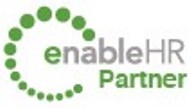
HR Changes for Employers in 2015
Author: enablehr Category: Company News
As we head into 2015, here is a glimpse into projected upcoming HR and workplace relations changes and trends that are likely to impact your business.
1. Paid parental leave – Australia
First up, the Australian Government’s paid parental leave scheme continues to make the headlines, but not because it’s going to be legislated any time soon. So while the Australian Prime Minister, Tony Abbott rewrites his signature policy over the summer, it looks like we can expect to see more of the money being made available to invest in childcare instead.
Child care is of course one of the most important considerations for a woman returning to work. By replacing Tony Abbott’s paid parental leave scheme in favour of childcare, women may opt to return to work earlier than they might have otherwise planned. At the same time, affordable childcare also means that more women may choose to work full time rather than part time.
This of course is going to have a big impact on the workplace and on your ability to retain highly qualified members of your team after they have been on parental leave.
So a newly drafted PPL scheme with affordable childcare at its core may actually boost women’s retention in the workforce.
2. The Fair Work Amendment Bill 2014 – Australia
Currently before the Australian Senate, The Fair Work Amendment Bill 2014, sets out a number of changes that aim to cut workplace red tape for employers. According to the Government, the red tape and compliance savings are expected to amount to more than $70 million per year over ten years to the Australian economy.
The major changes include:
Unfair dismissal
The Fair Work Commission will be able to dismiss an unfair dismissal claim where the application has no reasonable prospects of success or where the employee has acted unreasonably.
Transfer of business
Where an employee takes up employment with an associated employer at their own initiative, the current transfer of business provisions in the Fair Work Act 2009 will not apply.
Parental leave
Under the new law, as an employer, you will be required to give an employee on unpaid parental leave a reasonable opportunity to discuss extending the period of leave.
Individual flexibility
Non-financial benefits need to be taken into account when determining whether an employee is better off overall under an individual flexibility arrangement.
Entitlements upon termination
As an employer, you will only be obliged to pay out annual leave loading on termination if required to do so under an enterprise agreement or modern award.
Annual leave
While receiving workers’ compensation, employees will no longer be able to take annual leave.
3. Continuous performance reviews – Oceania
A massive shift is occurring in the traditional formal appraisal process. More small businesses are foregoing the annual review in favour of continuous performance management as part of their day-to-day operations.
It makes sense. Work is happening in real-time, so it follows that feedback should also happen in real-time.
Continuous performance management enables your managers to provide feedback as and when it’s needed. And it gives employees the opportunity to improve year-round rather than just once a year.
This style of management means you to talk about performance regularly and let employees create their own goals on a regular basis. It compels managers to provide ongoing feedback and have honest, productive conversations.
Remember, good performance management is not a one-a-year chore, but a continuous process that can help you create a more dynamic workplace and develop a more productive and engaged team.
By using a set of online tools, you can encourage all employees to give each other feedback, and to self-assess. And if you set and reset goals frequently, you can ensure employees get feedback on a continuous basis.
4. Social media – Oceania
As social media becomes more deeply entrenched in all aspects of our lives, it’s important to spell out to your employees exactly what is and isn’t considered acceptable use of company time. For instance, you may happily encourage social media check-ins and for your employees to like and share your company’s social media content. At the same time, you may want to control exactly what your employees say about your business on these platforms. The only way your employees will know for sure as to what they’re allowed to do is to introduce a formal social media policy.
If you need help to understand or implement or your obligations, please contact us on: (07) 5530 1571
Happy New Year!
News and ArticlesJan 8th, 20150 comments
About Us
At Human Resource Services Pty Ltd we provide cost effective outsourced HR, IR, WHS Management solutions and Permanent Placement Recruitment Services. We are here when you need us and we come to you!




